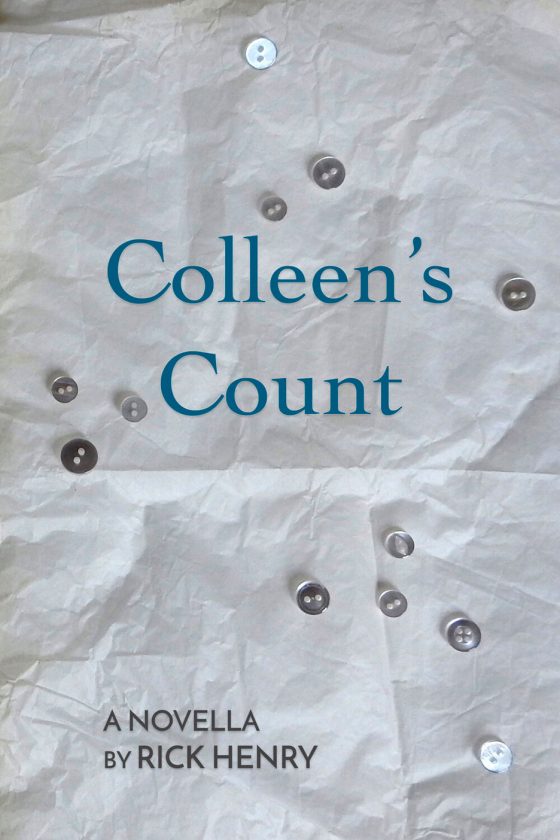Small Adirondack town, real voice, complex narrative in ‘Colleen’s Count’

In Rick Henry’s new novella, “Colleen’s Count,” it’s 1933 and a spicy brand of feminism has co-evolved with the inernal combustion engine. There’s an all-women motorcycle club called the Bracir Belles, a drive-in showing racy movies, and Studebakers, Dodges, DeSotos and Plymouths all roll by the Main Street intersection where Colleen O’Shea counts traffic on a hot afternoon.
The book’s structural conceit is simple: Colleen marks down each passing car on a steno pad. She’s a stationary figure recording a moving world, but her voice is far from static. The novella’s great success is this narrative consciousness, which vaults up from its situation into a complex of social, racial, gender and personal tensions that characterize a small, Depression-era town on the western edge of the Adirondack Park.
While most of those issues remain unresolved, Colleen’s voice quickly won my trust. She is a real human in a world of caricatures. Above all, she is deeply involved and interested in the processes she observes. Rick Henry has borrowed heavily from the modernist toolkit, with quick pivots through space-time and a highly variable sentence structure meant to mimic a roving mind. Some reviewers have drawn parallels with Joyce’s “Ulysses,” and the “day in the life” structure and the poetics of subjective consciousness match the rubric. To my ear, though, Henry’s definite nouns (“The Blow,” “The Settlement”) and his attention to physical process (“She stirs her coffee. Touches the sugar but sets it aside”) place us in more Faulknerian hands. A Faulkner, though, intimate with upstate New York and the pressures of rurality, proximity to both the Adirondack Park and the Canadian border, immigrant communities, and the interests of bankers and politicians.
Colleen’s voice is equal to this complicated picture — intimate, digressive, irreverent and bitter by turns. The effects can be disturbing. Behind her nonchalant delivery and sidelong references, a dark picture emerges: a town run through with greed and prejudice. A social structure dominated by powerful men, heedless of the damage they cause to both women and the places they inhabit. In contemporary writing, it’s all too common to identify and roundly vilify these characters. But “Colleen’s Count” does something more subtle. Sometimes enraged but just as often wistful, at one moment indicting, the next forgiving, Colleen names and exposes the acts and patterns which remain with us even today. Her wide-angle associations refuse a simple us-them framework for something less formulaic and more human. Colleen has been abused by men in her life, but she also loves them. She does penance for the sins of others. She seeks to understand before seeking to be right. She watches, marks down passing cars in her notebook, and thinks the thoughts that only she could.
The individuality and integrity of this voice is a success. And yet, it’s not an easy book. Despite its short 60 pages, “Colleen’s Count” contains the scope and attention of a much larger world. I read and reread over several sittings to form a clear picture of the people and events. Even so, I remain uncertain about some major plot points. That’s in keeping with the highly subjective narrative style — some things are too delicate to approach head-on and so remain, for us as readers, only colloidal possibilities. The book risks that obscurity in service of its bold surround. For some readers, the payout will be worth it: a richly imagined world with enough ragged edges to resemble our own. For others, the effect will be frustratingly hermetic.
If you’re willing to buy into Henry’s narrative demands, though, there’s more where this came from. “Colleen’s Count” belongs to the same universe as two of Henry’s previous novels: “Letters (1855)” and “Lucy’s Eggs.” For more information on these books and on the author, visit rickhenry.net.



